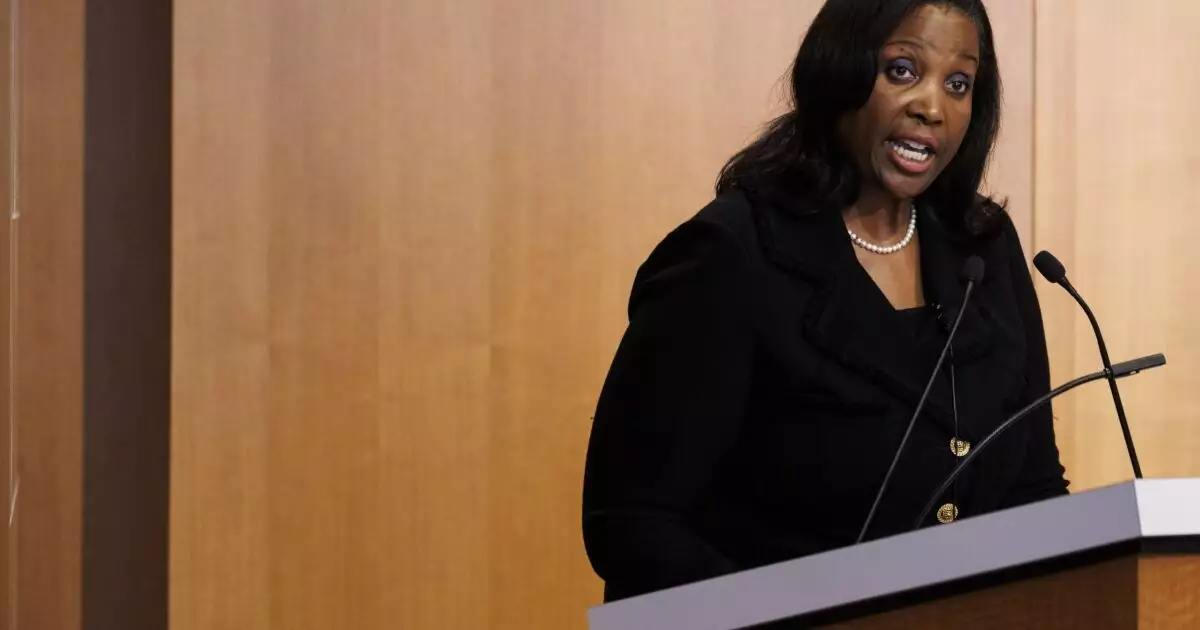In recent weeks, the political landscape has taken a concerning turn, revealing how fragile the independence of the Federal Reserve truly is. When sitting presidents, regardless of political alignment, begin to publicly threaten appointed officials over unfounded or politically motivated allegations, it jeopardizes the fundamental principle of an unbiased, apolitical monetary policy. The case of President Donald Trump’s unequivocal statement that he would fire Federal Reserve Governor Lisa Cook if she does not resign over claims related to her personal finances exemplifies a troubling shift. It is a stark reminder that the central bank’s independence, which has historically insulated monetary policy from short-term political pressures, is increasingly under fire from those seeking to wield economic tools for partisan gains.
The core issue isn’t merely about one individual’s alleged misconduct. Instead, it is about how the use of political power to remove or threaten officials based on policy disagreements or personal vendettas undermines the institution’s credibility. The independence of the Federal Reserve is crucial for maintaining stable economic conditions, controlling inflation, and managing employment. When that independence becomes subject to the whims of intense political pressure, the risk of politicized decision-making looms large, fostering volatility and eroding public trust in the financial system.
The Power Dynamics and the Blurring of Lines
Historically, the political establishment has recognized the importance of shielding certain sectors of government from partisan influence. Courts, especially through rulings like Humphrey’s Executor v. United States, have delineated clear boundaries to protect agencies like the Federal Reserve from political firing pressures, emphasizing their unique, quasi-private status. Still, recent actions by Trump and his administration challenge these boundaries by promoting the idea that all federal officials are mere pawns under executive control if they fall out of favor.
The invocation of the unitary executive theory by Trump’s administration is particularly problematic. This doctrine argues that all executive power resides solely in the President, minimizing the independence of institutions like the Fed or regulatory agencies. The mass dismissals of Democratic appointees in independent agencies can be viewed as attempts to politicize these bodies, stripping away their insulation and turning them into tools for partisan agendas. Such a power grab risks destabilizing the delicate balance that safeguards the economy from politically motivated excesses.
Moreover, the use of personal accusations, like claims of financial misconduct against Lisa Cook, to threaten or pressure officials presents a grave concern. These tactics often serve as smokescreens, disguising political motives beneath the veneer of scandal or misconduct. By framing the issue in moral or legal terms, political actors divert attention from substantive policy disputes to personal attacks that weaken institutional credibility.
Political Interference Versus Institutional Integrity
The broader implications are troubling. When politicians leverage accusations or threats to influence policy decisions, the entire economic framework becomes vulnerable to partisan manipulation. Central banks are tasked with maintaining economic stability, and their policies should be rooted in data and expert consensus, not political expediency. If Fed officials fear retaliation or removal—especially when such threats are made publicly—they may become hesitant to act decisively, thereby risking economic instability.
Furthermore, linking the firing of officials like Lisa Cook to broader political tactics can set dangerous precedents. It blurs the lines between legitimate oversight and raw political interference. The independence of the Federal Reserve, modeled after a quasi-private institution rooted in a historical tradition of nonpartisanship, is essential for protecting the nation’s economic health. Undermining that independence by using executive power to remove officials based on political disagreements or accusations based on personal matters threatens to undermine decades of stability and sound monetary policy.
Ultimately, what lies at stake is the integrity of America’s economic institutions. The Federal Reserve’s ability to operate without undue influence ensures that monetary policy is driven by considerations of inflation, employment, and financial stability—not by the shifting tides of partisan politics. Eroding this independence risks turning the central bank into a pawn in political battles, endangering economic growth, inflation control, and international credibility in the process. The protection of central bank independence from political interference is not just a matter of institutional doctrine; it is a cornerstone of economic stability and national prosperity.

